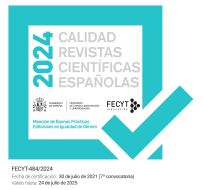Guardianes de la tradición y esclavos de la rutina: historia del campo profesional de los catedráticos de instituto
DOI:
https://doi.org/10.5944/hme.1.2015.12869Parole chiave:
Educación secundaria, Catedráticos de Instituto, Campo profesional, Modos de educación, Código disciplinar, EspañaAbstract
El presente trabajo se ocupa de la construcción, desarrollo, crisis y ocaso del campo profesional de los catedráticos de Instituto. La sociogénesis de la institución sociocultural que aquí se propone, requiere del estudio cuantitativo y de la evolución del marco normativo en el que hubo de desenvolverse la corporación, pero también, y fundamentalmente, de la indagación en el ethos de sus componentes, en el conjunto de pautas ideológicas, normas y reglas no escritas que terminaron por forjar un canon profesional extraordinariamente sólido y duradero. Asimismo, el trabajo ensaya un expresivo y actualizado estado de las investigaciones sobre el temaDownloads
##submission.downloads##
Pubblicato
2015-02-20
Come citare
Cuesta Fernández, R., & Mainer Baqué, J. (2015). Guardianes de la tradición y esclavos de la rutina: historia del campo profesional de los catedráticos de instituto. Historia y Memoria de la Educación, 1(1), 351–393. https://doi.org/10.5944/hme.1.2015.12869
Fascicolo
Sezione
Special Issue
Licenza
Authors who publish in Historia y Memoria de la Educación agree to the following terms:
- Authors retain copyright and grant the journal right of first publication with the work simultaneously licensed under a Creative Commons Attribution-NonCommercial 4.0 International that allows others to share the work with an acknowledgement of the work's authorship and initial publication in this journal.
- Authors are able to enter into separate, additional contractual arrangements for the non-exclusive distribution of the journal's published version of the work (e.g., post it to an institutional repository or publish it in a book), with an acknowledgement of its initial publication in this journal.
- Authors are permitted and encouraged to post their work online (e.g., in institutional repositories or on their website) prior to and during the submission process, as it can lead to productive exchanges, as well as earlier and greater citation of published work (See The Effect of Open Access).









